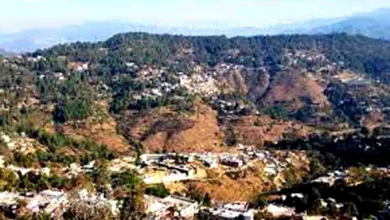GUEST COLUMN : Reverse the process of studying abroad

One day in the mid-seventies, a boy named Prasad in his village got a telegram from his office that he had been selected to go to Germany for advanced training. It was great news for the people of his village, particularly for his family, that one of the natives of the village was going abroad. His mother distributed sweets to her neighborhood. But his father, who fought for the freedom of the country, had some reservations. He said that we got independence after struggling a lot and told our educated people that they must serve India while being in India. His father was a national pleader for the Azad Hind Fauj besides participating in day-to-day actions for the freedom of India. He allowed Prasad to go abroad but asked him to return to serve India.
 VP Dimri
VP Dimri
The forceful return of our students studying in Ukraine back to India in the not too distant past opened many questions. Studying abroad used to be considered a golden opportunity, especially for higher studies like doctoral or postdoctoral degrees. Almost every student used to dream of going abroad but it was difficult to materialise for various reasons. First, parents could not afford such costs for journeys and staying there. The second is getting admission to such prestigious institutes, universities, etc. So, very few from India would be able to pursue higher studies in foreign countries. But, now things are changing. Both the criteria such as getting admission and affording expenses for studying abroad are manageable for various reasons. Many articles are appearing in the media stating that study abroad is cheaper than in India, especially in the field of medicine. However, some students from neighboring countries are coming to India to upgrade their education. One such example is Nepal which sends thousands of students to India. So, currently, it is becoming common for exchange students to study abroad. But I see some cases during the time of hard-earned freedom from the British when parents had some reservations about sending their children abroad.
One day in the mid-seventies, a boy named Prasad in his village got a telegram from his office that he had been selected to go to Germany for advanced training. It was great news for the people of his village, particularly for his family, that one of the natives of the village was going abroad. His mother distributed sweets to her neighborhood. But his father, who fought for the freedom of the country, had some reservations. He said that we got independence after struggling a lot and told our educated people that they must serve India while being in India. His father was associated with the Azad Hind Fauj besides participating in day-to-day actions for the freedom of India. He allowed Prasad to go abroad but asked him to return to serve India. So, he went to Germany and returned to India to serve his country as decided by his father. Again, in the eighties, he got a chance to visit Norway for two years. After completing his official tenure in Norway, he was offered the post of vice president in an oil company in Norway. After the discovery of oil in the North Sea, Norway became very rich and many foreigners were attracted with handsome salaries. So, he was one of them. But, he remembered the advice of his late father that he must serve India while living in India. So, he returned to India to join the duties needed for the welfare of India. Further, Prasad said on the day of retirement during an interview on national television that he would work without any money if invited to serve India.
One can argue that Prasad has a job in India, so, he would have opted to stay and serve India from India. However, one can enhance his qualifications and experience in foreign countries and return to India for better jobs as many multinational companies have their offices in many big cities of India. This seems to be a better alternative.
Now, I write about why Indian scientists cannot take foreign students for their higher studies in India. However, we have many exchange programmes in which Indians can go abroad and foreigners can come to India. This is a very good initiative but does not allow for a longer stay in India particularly in the field of science and engineering. Earlier the Indian Government used to encourage students from less developed countries to come to India. But in the nineties, there were no schemes to support students from developed countries in their studies in India. It was the early nineties when a German student after doing his master’s degree wanted to do a PhD in India. There was no scheme to give him financial support from any government departments. Of course, there is a scheme under the Third World Academy of Sciences (TWAS) wherein students from third-world countries can come to India with financial help either from TWAS or the host country. A student from Germany was asked to go back but he returned with money for his stay etc. He did a PhD in geophysics from an Indian university while doing research at one of the laboratories of the Council of Scientific and Industrial Research. There are not many cases wherein students from developed countries are coming to India for a PhD in science and engineering. This is only one way for Indians to go abroad but not both ways i.e. foreigners from developed countries coming to India.
Let us design a new system wherein foreigners come to Indian universities, institutes, etc for higher studies like doing PhD and post-doctoral studies. For this, we have to upgrade the world ranking of our institutes. There are two types of ranking, one is subject-wise and the other is overall. Also, rankings are classified as national and international. Students seeking admission abroad normally see these rankings of institutes or universities internationally in their subjects. So, we need to upgrade the quality of education in terms of the ranking of our institutes to attract foreign students. If this happens our best students would not go abroad and the reverse trend would start.
(A Padma Shri recipient, the author is a scientist who has worked in various institutions. Views expressed are personal)






